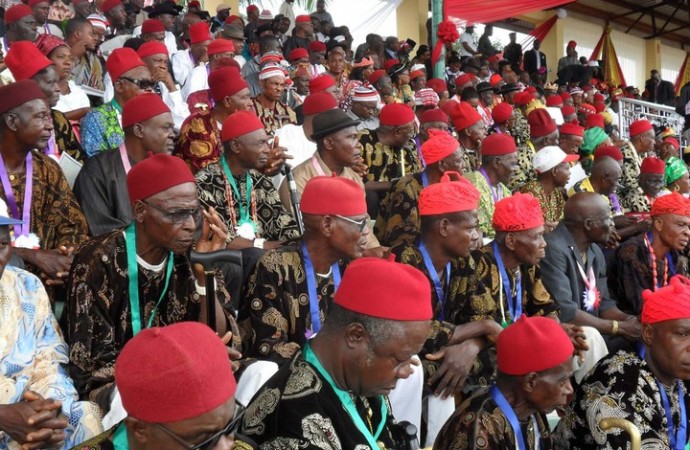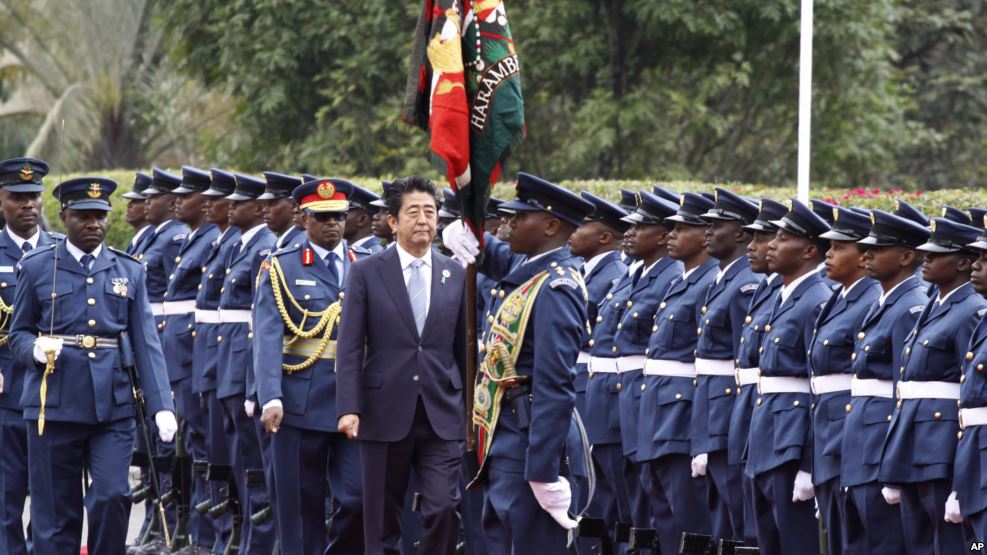
OFFICIAL COMMUNIQUE RELEASED AT THE END OF THE WORLD IGBO SUMMIT HELD AT GREGORY UNIVERSITY UTURU ABIA STATE BETWEEN 27TH – 30TH OCTOBER, 2016
My dear Igbo greats, following the completion of the 4-day Igbo Summit held at the Gregory University Uturu, Abia State, to herald the 50-year Visioning programme for the Igbo nation, I hereby present to you the official communique agreed and presented at the end of the Summit. This is the official and authentic version of the communique. Kindly disregard any previous communique as they were released without full authorization:
COMMUNIQUE OF THE WORLD IGBO SUMMIT HELD AT THE GREGORY UNIVERSITY UTURU ABIA STATE FROM 27TH – 30TH OCTOBER, 2016.
The World Igbo Summit took place at the Gregory University Uturu, Abia State, from 27th – 30th October, 2016. The Summit was organized to bring together the great minds of Ala-igbo from across the globe to dialogue and give for Igbo nation a strategic roadmap for growth and development going forward. The Summit heralded the 50-year Visioning Project initiated to strategize, document and design a roadmap for the sustainable development of Igbo nation to catalyze wealth repatriation and reinvestment in Igbo homeland by all Igbo sons and daughters in all parts of the world.
The theme of the World Igbo Summit is: Igboka – Visioning the Igbo Nation. The theme epitomizes Ndiigbo as a supreme race, a unique people, an autochthonous race and a great people of destiny whom God imbued with the manifest destiny of becoming the pride of the black race through her ingenuity, industry, dispersion, resourcefulness, creativity, hard work, honesty, perseverance and fear of God.
The meeting was co-chaired by General (Sen) Ike Nwachukwu, His Excellency Dr Chukwuemeka Ezeife, Chief (Col.) Joe Achuzia, Chief Francis Oji and Chief Emmanuel Iwuanyanwu. The well attended Summit has in attendance great leaders of Igbo extractions from the East and West of Igboland including His Royal Majesty Igwe Alfred Nnaemeka Achebe (Obi of Onitsha), Eze Eberechi Dick (Chairman South East Council of Traditional Rulers), Prof, Joe Irukwu, Prof George Obiozor, Prof Ihechukwu Madubuike, Igwe Prof Chukwuemeka Ike, Mazi Sam Ohuabunwa, Prof Epiphany Azinge, Prof Pat Utomi, Igwe Engr S.O Okafor, Dr Greg Ibe, Iyom Josephine Anenih, Chief Simon Nsobundu Okeke, Dr Ifedi Okwenna, Prof Maurice Iwu and so many other Igbo great intellectuals, professionals, businessmen, Civil society activists, gender advocates and other experts of Igbo extraction residing in different parts of the world. The Anambra State Governor Chief Willie Obiano was represented by the Deputy Governor, Dr Nkem Okeke. The Governor commended the World Igbo Summit Group and the Igbo Renaissance Centre of Gregory University Uturu for coming out with a commendable visioning project.
After a three day deliberation, the Summit resolves as follows:
Ndiigbo have made the biggest sacrifice and contributions to the building of the modern Nigeria and insist that henceforth will work for a Nation where the Igbo are allowed to live and operate as equal citizens without any discrimination, bias or intimidation.
Ndiigbo Insist that the 1999 Constitution should be repealed and a new one enacted that will recognize the inalienable right of each constituent group to self-determination and Regional autonomy as enshrined in the 1960 Independence Constitution and 1963 Republican Constitution.
We call for the implementation of the recommendations of the 2014 National Conference report as doing so will enhance the unity, peace and stability of the country.
Ndiigbo hereby resolve to take full responsibility for the rebuilding of the Igbo economy and development of Ala-Igbo and hereby shall adopt the digital economy as the organizing paradigm and implementation framework for the sustainable development of Alaigbo.
That in line with the recent resolution of the Southern Nigerian Peoples Assembly, the National Assembly and State Assemblies should legislate the prohibition of nomadic grazing by herdsmen and the establishment of grazing reserves and ranches with public funds. We therefore call on the National Assembly to oppose the grazing bill in both chambers.
That in view of the threat by the Fulani herdsmen which constitute present and imminent danger to peace and security in Igboland, the Summit called on the Igbo Governors and the States Assemblies to immediately legislate against any form of open grazing in Igbo land.
That the Biafran spirit is the Igbo spirit of enterprise, hard work and excellence that seeks for justice, equity, and fairness for all. The current agitations therefore is a cry for justice for Ndiigbo. Thus the Biafran agitation is not a threat to national security. We therefore urge the Federal Government to release Nnamdi Kanu and all other prisoners of conscience in line with the rule of law.
The South East Governors should establish a Joint Commission for development of Ala-Igbo and be supportive of good Igbo initiatives.
It was further resolved that henceforth Igbo Political leadership (elected and appointed) must act in the best interest of Ndiigbo and be prepared to be held accountable by the people for all their actions and inactions.
We restate that the principles of Igbo Social Justice – Akulueuno, Eziokwubundu, Onyeaghana-nwaneya, Igwebuike, Ezi-afaka-ego, Egbe-bere-ugo-bere, Akon’uche, nwanyi-bu-ife, ntorobia bu-Ike Obodo would be fully applied in our interactions among Ndiigbo and our neighbours.
The Summit resolved to recognize the contributions of the NdiiIgbo in the DIASPORA-Africa, Europe, the Americas, Asia etc. to the achievement of our vision and committed to sharing their aspirations and challenges and we encourage them to think home and invest home.
The Summit expresses their appreciation to the Chancellor and Management of Gregory University Uturu for being a wonderful host and for their commitment to the reengineering of Igbo growth and development through her Igbo Renaissance Center.
Long Live Igbo Nation
Long Live Federal Republic of Nigeria
Sen (Gen) Ike Nwachukwu
HE Dr Chukwuemeka Ezeife
Chief Col. Joe Achuzie
Chief Francis Oji
Chief Emmanuel Iwuanyanwu
Prof George Obiozor
Dr Gregory Ike Ibe
Iyom Josephine Anenih
Dr Joe Nwaogu
Prof. Joe Irukwu (SAN)
Prof. Ihe Chukwu Madubike
We thank all who came to Uturu and participated actively at the Summit.
My Special thanks goes to Obi of Onitsha, Igwe Alfred Nnaemeka Achebe who commuted from Onitsha to Uturu for two consecutive days and delivered a mind-lifting paper that form the fulcrum for the Visioning Process. The Keynote speakers Prof Epiphany Azinge and Dr Chris Aniedobe were indeed very outstanding. To all resource persons. I say thank you. Dr Greg Ibe is indeed a gift to the Igbo nation and we shall ever appreciate him. May God keep him and continue to bless him. To all who were physically present and all who were with us in spirit, thank you and may the good lord bless you all. Oga adiri Igbo nma.
(Dr Ifedi Okwenna Director General World Igbo Summit Group and Summit Secretary).

